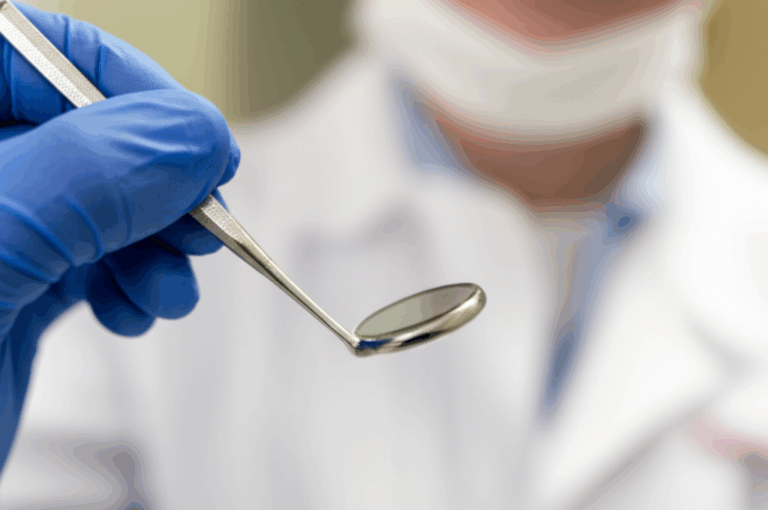
What Is a General Dentist? Your Guide to Everyday Oral Health Care
That moment when you’re lying back in the dental chair, listening to the soft buzz of tools and smelling that really clean scent—you might start thinking: “What does a general dentist actually do, and why are these regular visits so important for my health?” Maybe you’re looking for a new dentist for your child or an older parent, or just trying to figure out the difference between all those dental specialists.
If you’ve wondered, “Do I really need a dentist if nothing hurts?” or “What do general dentists really do besides clean my teeth?”—you’re not alone. These are normal questions that lots of people have.
As your friendly dental guide, I’m here to answer all your questions and more. I’ll explain things in plain words, so you’ll feel sure about caring for your mouth.
In This Article
- What Does “General Dentist” Really Mean?
- The Simple Science: What Happens in a General Dentist’s Chair
- Your Options: Services General Dentists Offer
- When to See a General Dentist vs. a Specialist
- Who Benefits Most from General Dentistry?
- The Long-Term Benefits: Why Consistency Matters
- FAQs: Everyday Concerns About Visiting a General Dentist
- Key Takeaways and Next Steps
What Does “General Dentist” Really Mean?
Let’s start simple, because there’s a lot of confusing language in dentistry.
Question: What is a general dentist, and do I need one if I don’t have a problem?
Great question! Your general dentist is like the main person looking after your mouth’s health. They’re like your family doctor, but for your teeth and gums: the one you see for regular check-ups, basic help, and advice. A general dentist cares for people of all ages and handles everything from stopping problems before they begin to fixing things if they go wrong.
If you’ve ever had your teeth cleaned, a cavity filled, a new crown made, or had a sore tooth checked, you probably saw a general dentist. Even if you think, “My teeth feel fine—I’ll skip this visit,” general dentists look for small problems before they get big, just like a mechanic might catch a loose part during a car check-up.
Credentials: What Makes a “General” Dentist?
All general dentists go to dental school for four years after college. They get either a D.D.S. (Doctor of Dental Surgery) or a D.M.D. (Doctor of Medicine in Dentistry)—these mean the same thing, just different names from different schools. Dentists also have to pass tough tests and keep learning new things all the time.
In short—they’re experts in all-around dental care.
The Simple Science: What Happens in a General Dentist’s Chair
You might think dental visits are just about “teeth cleaning and a telling off about flossing,” but there’s a bit more to it.
The General Dentist’s Job, in Plain Words
A general dentist can do lots of things, usually in four big areas:
1. Preventive Care
This is the main job of a general dentist. They want to stop problems before they start, like a coach keeping the other team from scoring. This includes:
- Routine check-ups (“dental exams”) to catch problems early
- Professional cleanings to get rid of sticky stuff and hard buildup
- Dental X-rays to see what’s going on under your gums
- Fluoride treatments to make your teeth stronger against cavities
- Dental sealants—thin, covering layers, mostly for kids’ or adults’ back teeth
- Oral cancer checks
- Teaching about brushing, flossing, and healthy foods for teeth
2. Fixing Teeth (Restorative Dentistry)
When things go wrong, general dentists are like fix-it people for your mouth. They can:
- Fill cavities
- Put a cap (crown) on a broken tooth
- Make bridges to fill spaces where teeth are missing (see the crown and bridge lab for how these are made)
- Replace missing teeth with dentures
- Do simple root canal treatments
- Pull teeth that can’t be saved
3. Improving Smiles (Cosmetic Work)
Want whiter or straighter teeth? General dentists often do:
- Professional teeth whitening
- Tooth bonding to fix chips or close small spaces
- Porcelain veneers for a smile update (using a veneer lab to make these special covers)
4. Special Checks & Emergency Help
- Looking at your bite and jaw if you have small problems
- Helping with simple TMJ (jaw pain) and making mouthguards for you
- Giving sleep apnea devices (for some cases)
- Dealing with emergencies—think sudden pain, a broken tooth, or losing a filling
“Why Can’t a General Dentist Do Everything?”
Even though they do a lot, general dentists will send you to a specialist for tough cases—just like your doctor sends you to a heart doctor for hard heart problems.
Your Options: Services General Dentists Offer
So, here’s the big question:
“What can my general dentist really do for me, and when do I go?”
I’ll break this into what you can do at home and what happens when you visit the dentist.
At-Home Prevention: Your Daily Help
- Brushing Your teeth twice a day with fluoride toothpaste
- Flossing Every day—yes, it really works!
- Rinsing With mouthwash if your dentist says so
- Eating Healthy foods, staying away from lots of sugar
- Changing Your toothbrush every 3–4 months
General dentists want you to do well at home! They’ll show you the best ways and tools for your teeth.
In-Office Services: What Your General Dentist Does
Preventive Care (Stopping Problems Early)
- Check-ups and cleanings: Usually every six months. Your dentist looks for small problems and keeps your teeth and gums clean.
- Dental X-rays: Usually once a year, these see hidden cavities or bone problems.
- Fluoride and sealants: These help prevent cavities, especially for kids, but adults can get them too.
- Oral cancer exams: Quick and easy checks at your regular visit.
Fixing Teeth
- Fillings: Today, these are often tooth-colored and look natural.
- Crowns or caps: For teeth that are weak from decay, big fillings, or injury.
- Bridges and dentures: To fill empty spots and help you chew and smile again.
- Root canals: When a tooth has a bad infection inside.
- Simple tooth removal: If a tooth can’t be fixed.
Changing Your Smile (Cosmetic Dentistry)
- Teeth whitening: For a brighter smile, sometimes in under an hour.
- Bonding and veneers: To fix chips, cracks, or stubborn stains. A dental ceramics lab can make lifelike, special covers.
- Slight tooth shaping: To even out your smile.
Other Work
- Gum disease care: From deep cleaning in early gum trouble, to watching your habits.
- TMJ help: For clicking, popping, or sore jaws.
- Nightguards and mouthguards: Made for you, for better fit and safety.
- Referrals: For braces (orthodontics), harder tooth removals, advanced gum work, or dental implants.
When to See a General Dentist vs. a Specialist
You might be thinking: “Isn’t a dentist just a dentist?”
Not really! Here’s an easy way to picture it:
- General dentists are like your main doctor for regular dental needs.
- Specialists—like orthodontists (for braces), periodontists (for tough gum work), oral surgeons (for hard extractions or surgery), endodontists (for tricky root canals), and prosthodontists (for difficult repairs)—are like special doctors for certain problems.
When Will a General Dentist Send You Elsewhere?
If you need:
- Braces for bigger alignment problems
- Gum surgery that’s more than simple cleaning
- Redo root canals that are complicated
- Removal of wisdom teeth that are stuck or hard to reach
- Dental implants (some general dentists do this, but many send you to an implant dental lab)
General dentists know when to treat you and when to hand over to a specialist. It’s all about getting you the best help.
Who Benefits Most from General Dentistry?
Short answer: Everyone.
Little kids with their first tooth, teenagers, busy adults worried about stained teeth, and older people dealing with sore gums or missing teeth—a general dentist helps all ages.
But really, here’s who needs to keep up with visits:
- Kids and teens: To stop cavities, watch growing teeth, and teach good habits
- Pregnant women: Body changes can mean more gum problems, so extra checks matter
- People with other health problems: Like diabetes or heart disease, since these can affect your mouth
- Older adults: Older teeth and gums need careful attention, from sensitivity treatments to answers for missing teeth
If you have a mouth, you should see a general dentist.
The Long-Term Benefits: Why Consistency Matters
It might feel like a chore to look after your teeth. But the truth is, skipping dentist visits can lead to worse problems—like pain, infections, and big dental bills.
Why regular dentist visits are worth it:
1. Stopping Problems Early Is Cheaper
It’s much easier and costs less to fill a small cavity or clean your teeth than to treat sore gums or pull teeth.
2. Same Dentist = Better Care
Going to the same dentist means they really get to know your mouth and can spot changes sooner.
3. A Healthier Body, Not Just a Healthy Mouth
Gum disease is connected to heart problems, diabetes, and even pregnancy issues. Your dentist is looking after your whole health.
4. Confidence and Comfort
A healthy smile helps you eat, talk, and feel better about yourself. Regular dentist care keeps you smiling.
FAQs: Everyday Concerns About Visiting a General Dentist
“How often should I see a general dentist?”
Most people should go every six months. But if you have gum problems or lots of cavities, your dentist might want to see you more often.
“Does dental insurance pay for regular visits?”
Most dental plans cover checkups, cleanings, and X-rays most or all of the time. Ask your insurance company or dental office for details.
“Should I go to a dentist only if I have pain?”
No! Many dental problems start off not hurting at all. By the time it hurts, it can be a much bigger (and more expensive) problem. Early checks are best.
“What if I haven’t seen a dentist in years?”
You’re not the only one! It’s okay to start again. Make an appointment, get your checkup, and talk to your dentist about next steps.
“What’s the difference between a filling and a crown?”
A filling fixes a small to medium-sized hole in your tooth (from a cavity or crack), while a crown covers and protects a tooth that is badly damaged or weakened.
Key Takeaways and Next Steps
Here’s what matters most:
- A general dentist is your go-to partner for everyday dental health.
- Regular visits help catch problems soon and keep your mouth healthy at any age.
- General dentists do a lot—from cleanings and check-ups to fillings, crowns, and dealing with emergencies.
- If you need special work, your general dentist will send you to the right expert.
- Stopping problems early is easier, cheaper, and less painful than waiting for things to get bad.
What You Can Do Now
If you haven’t had a checkup in over six months, why not book one? Don’t wait for pain—think of your general dentist as your teammate for a healthy mouth and body.
Wondering about dental appliances or special materials? Your general dentist works with trusted partners, like a china dental lab, to make sure you get good, long-lasting results.
A brighter, healthier smile starts with one easy step—talking with a dentist you trust. Ask questions. Make regular care part of your routine. Your future self (and your teeth) will thank you!
Sources & Trust Signals
- American Dental Association (ADA)
- U.S. Bureau of Labor Statistics (BLS) Dental Occupations Report
- National Institute of Dental and Craniofacial Research (NIDCR)
- Medically reviewed by dentist
A healthy mouth is the start of a healthy life. Got questions? Ready to make a difference for your smile? Schedule a checkup with your general dentist and experience kind, helpful care.








